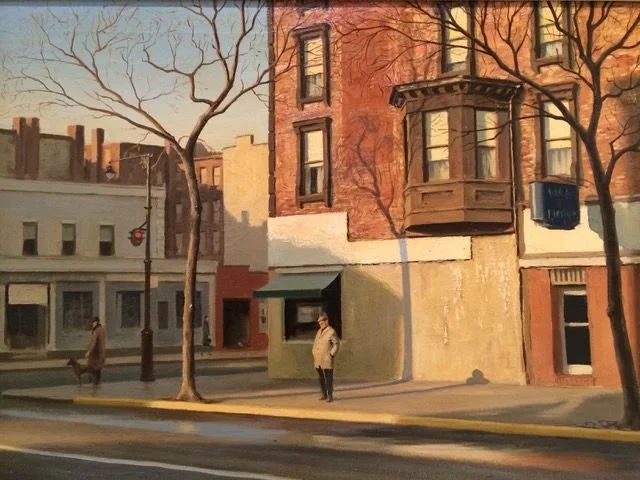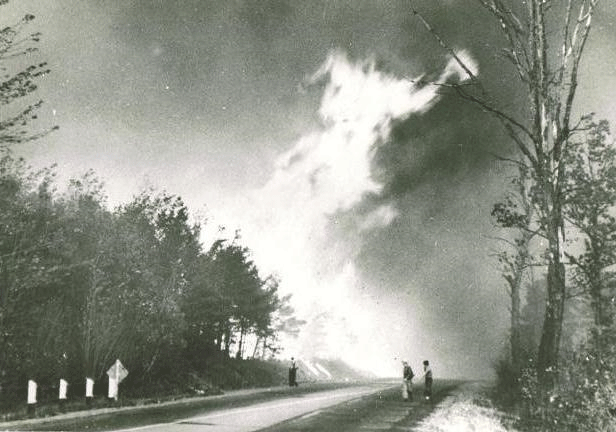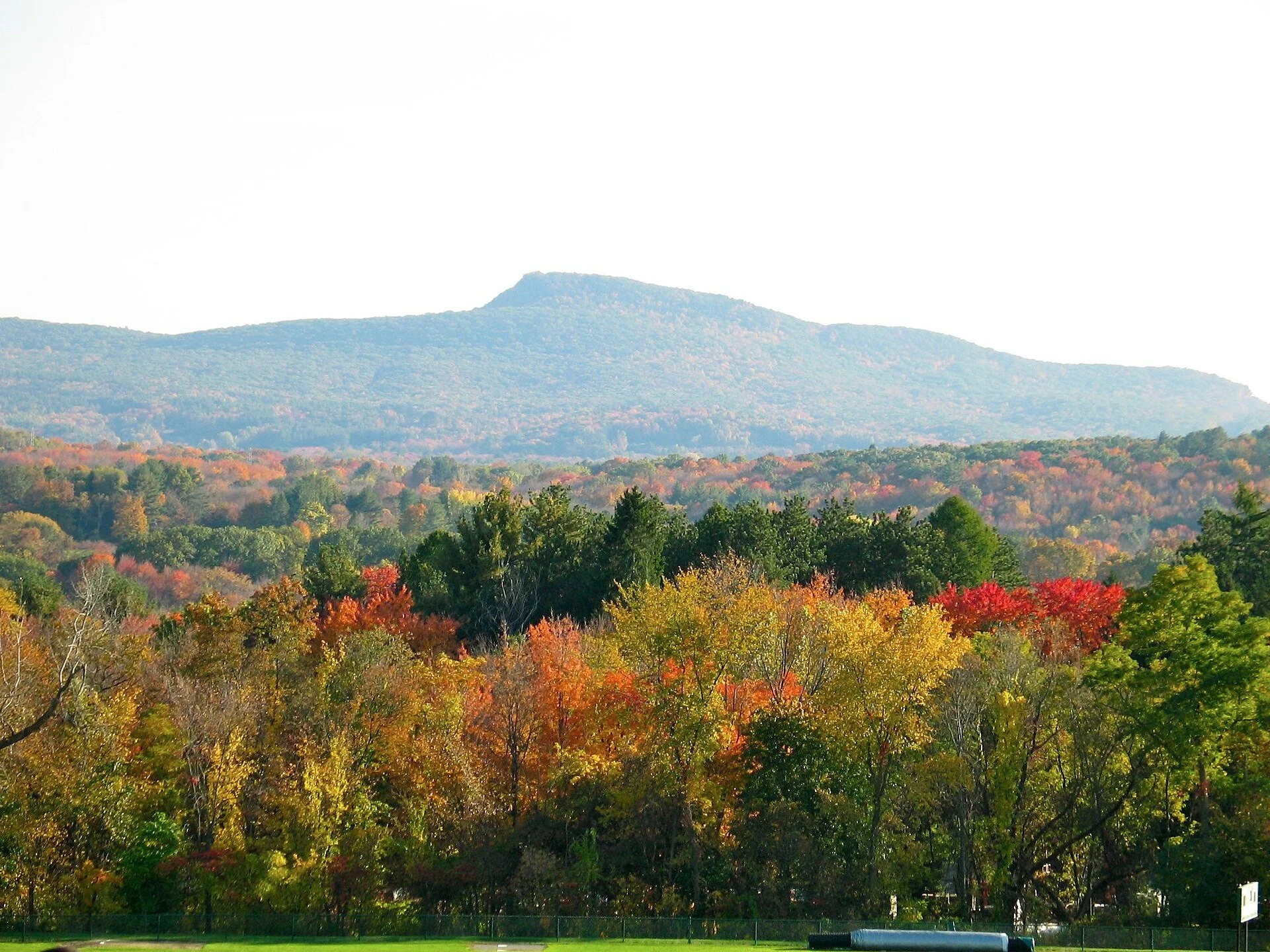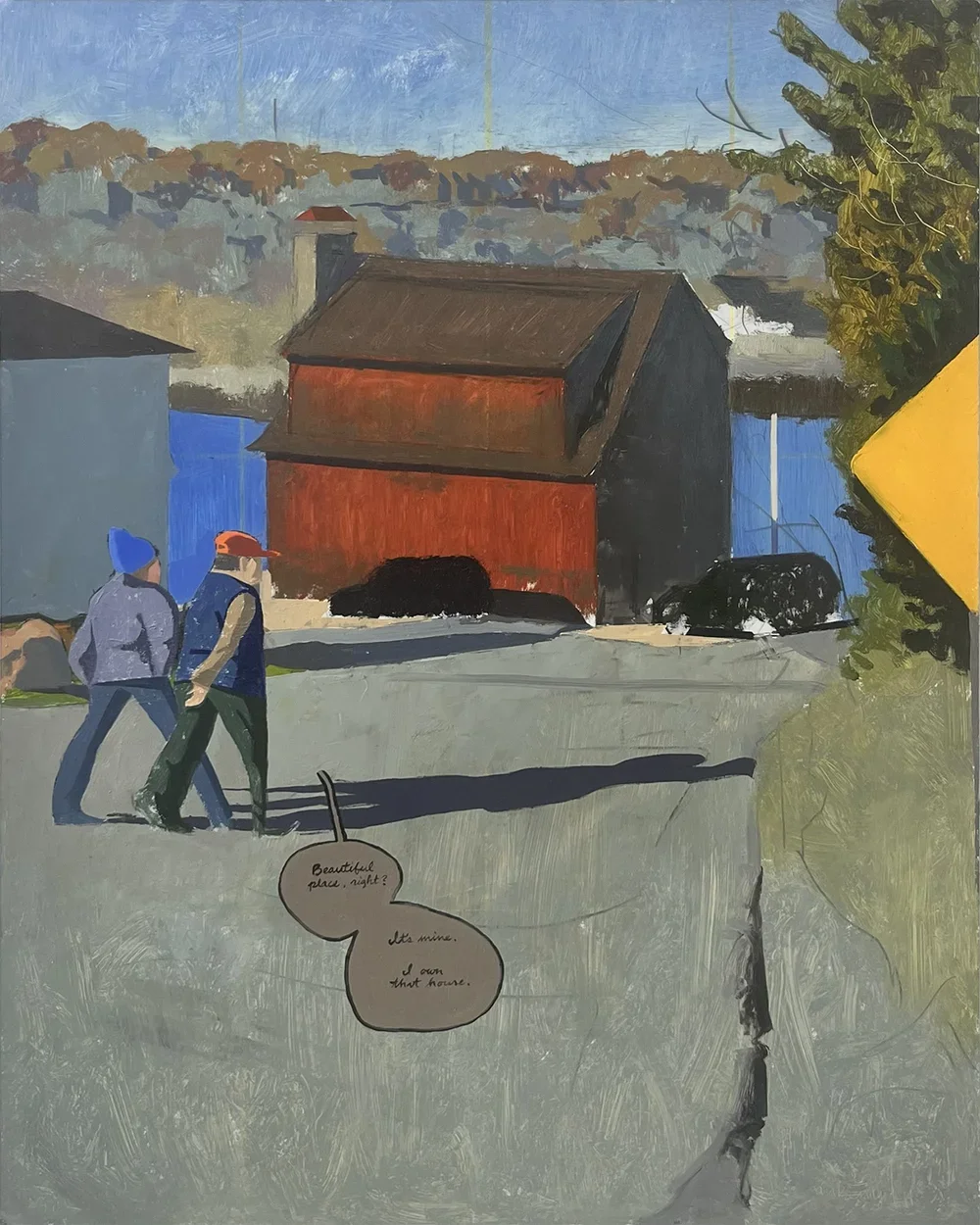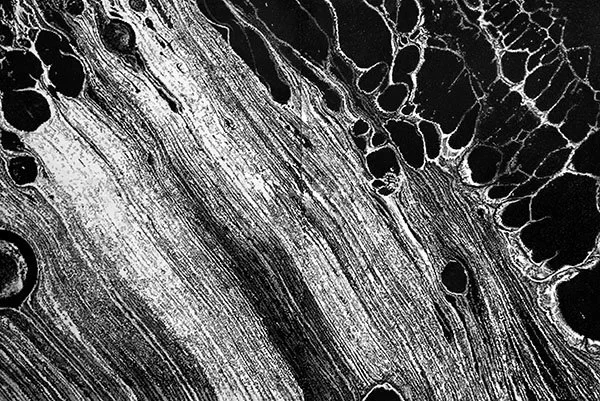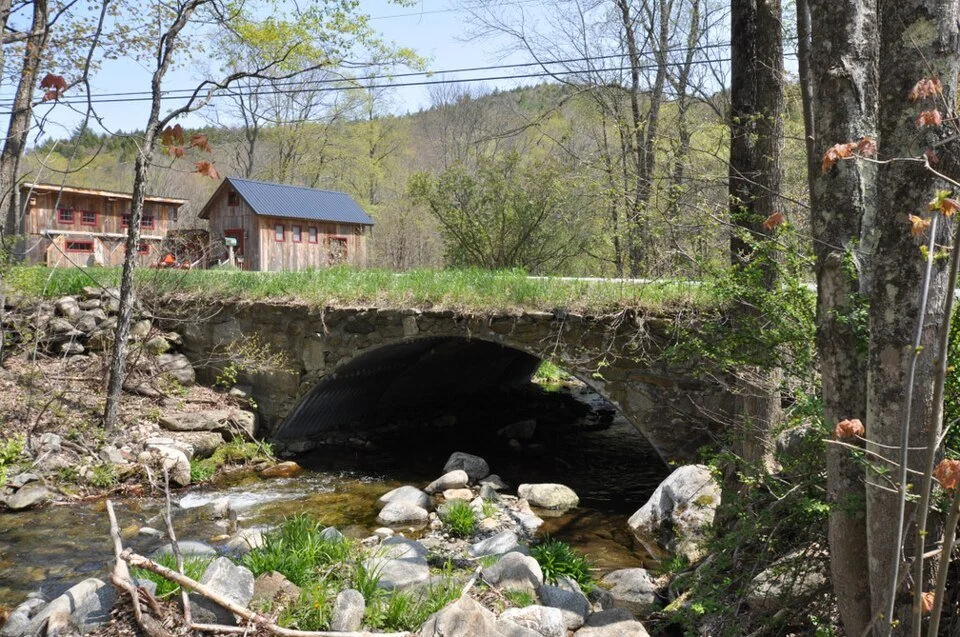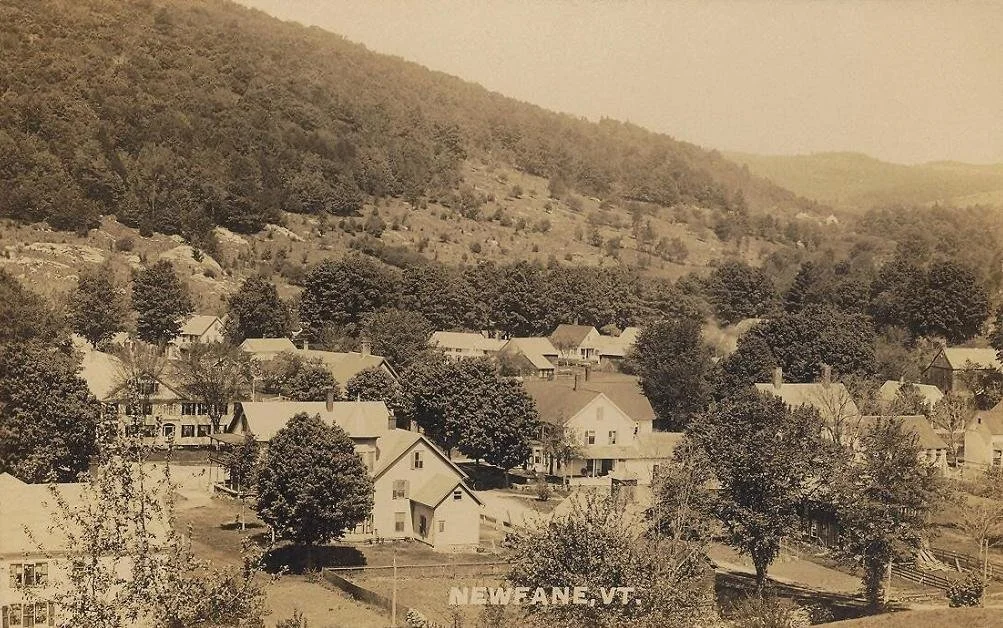
Late-sumner musings
Horseshoe crab heading for the water. The very, very ancient creatures are not true crabs.
Horseshoe crab dorsal anatomy.
Adapted from Robert Whitcomb’s “Digital Diary,’’ in GoLocal24.com
Shoreline walkers would do well to read famed nature writer Rachel Carson’s (1907-1964) beautiful (poetic in some places) and animal-and-plant-and-geology-and-weather-packed 1955 classic The Edge of the Sea. (There were a lot more horseshoe crabs back then, and not much plastic on beaches, but also more oil on the shore from ships, before the EPA. As kids, we loved to find sea glass.)
xxx
It’s too bad that college students must go back to school so early these days. Late August and early September have the best weather of the year around here. In my time, many of us didn’t have to go back until mid-September. Among other things this gave us more time to make money on summer jobs. (May and early June weather not so good for such work.)
xxx
It’s old people who most sense summer (and all other time) seeming to go faster every year, even as summer is getting longer climate-wise. And we’re excessively looking forward, or fearing, the next season. Too bad this can distract us from the pleasures of the moment, especially in person (not on a screen), in a constantly changing nature, such as seeing the Asters, which have several vivid colors, Black-Eyed Susans, and the purple-blue of Chicory on the roadsides.
Enjoy the sweet corn from local farms and the softer sunshine. And those noisy cicadas have a delicious nut-like taste!
Deep-fried cicadas. Better than popcorn!
So watch what you say
“Where Everyone Knows Your Name” (oil on canvas), by Jean Jack, at Portland (Maine) Art Gallery.
She says: “When I see something I want to paint the hairs on my arms stand up.”
Haunted inspiration
Painting of the reputed-to-be-haunted Fort Knox, Maine, by Seth Eastman and done between 1870 and 1875.
“I think one of the reasons {Mainer) Stephen King's stories work so well is that he places his stories in spooky old New England, where a lot of American folk legends came from.’’
— Ted Naifeh, American comic-book author
Lonely wait
“Waiting for Bus” (oil on canvas), by Stuart Grayson Garrett Jr. (1922-1996), at Southern Vermont Arts Center, Manchester, Vt.
Chris Powell: Medicaid fraud, kid cuffings, courthouse raid
MANCHESTER, Conn.
When the Republican federal budget and tax legislation was enacted in July, some Democratic officials in Connecticut screamed that it would destroy Medicare and Medicaid, that Republican claims of waste and fraud in those programs were exaggerated, and implied that there is too little waste and fraud in those programs to worry about.
But a few months earlier Gov. Ned Lamont's public health and social-services commissioner retired after it was disclosed that she had countenanced the termination of an audit of Medicaid fraud in a case in which the governor's former deputy budget director and a former Democratic state representative have been indicted and a Bristol doctor has pleaded guilty.
Just hours before the budget and tax legislation was enacted, state prosecutors charged an acupuncturist from Milford with defrauding Medicaid of $123,000.
And a few days ago the owners of a medical laboratory in Branford who were being federally prosecuted agreed to pay $1.2 million to settle Medicaid and Medicare fraud charges.
Necessary as Medicare and Medicaid are, as third-party payment systems they are structured to relieve beneficiaries of any incentive to check the charges incurred on their behalf. Such systems invite fraud and always can use more auditing, especially since the federal government's deficit is out of control and is severely eroding the value of the dollar and thereby reducing the country's living standards.
Elected officials who care about people who need government's help should be clamoring for more serious auditing of all expensive government programs to ensure that the money is well spent. Many Democrats' reflexive defense of the status quo of spending actually hurts the poor.
HANDCUFFS AREN'T THE PROBLEM: Last month elected officials and representatives of the social-services industry joined Governor Lamont at the headquarters of a youth-services organization in Norwalk to celebrate his signing of a law restricting the use of handcuffs by police on children under 14.
The law doesn't entirely forbid handcuffing children; they can still be handcuffed if they are violent or threatening violence or being conveyed to or from confinement.
Just how violent or disorderly do children have to be before police can properly handcuff them? Good luck to police officers in making this judgment and avoiding lawsuits.
Of course police officers are sometimes overbearing even as they are far more sinned against than sinning. The body cameras they increasingly wear and the dashboard cameras that are increasingly placed in their cruisers will help restrain them.
But the problem signified by the new law is not a problem of police misconduct, and the new law against handcuffing children is nothing to celebrate.
The problem is the worsening of juvenile misconduct and the growing number of children who don't know how to behave, one of the many problems that correlate with inadequate parenting. With the handcuffing law state government has decided, in essential Connecticut style, to try to address the symptom of a problem in the hope that no one will note that state government doesn't dare to investigate the problem's causes.
LAW APPLIES IN COURTHOUSES, TOO: Federal immigration agents caused a shocking scene the other day as they raided the state courthouse in Stamford and arrested two men who briefly barricaded themselves in a bathroom. The arrests appalled those people who don't believe that immigration law should be enforced, especially not in a courthouse, though people are routinely detained in courthouses on other charges.
The incident was also shocking to some because federal policy used to avoid arrests in courthouses, but the Trump administration has changed it, realizing that the law applies in courthouses, too, and that courthouses are good places for apprehending immigration-law violators.
Former state Rep. David Michel, D-Stamford, who documents immigration arrests, lamented, “It feels like we're in a state of lawlessness. When I document this, I feel like I'm in another country."
But the lawlessness is the illegal immigration, not arrests for it, and if immigration law is not enforced and all immigrants are not vetted normally, the United States soon may become another country.
Chris Powell has written about Connecticut government and politics for many years (CPowell@cox.net).
‘What it always was’
The Dry Salvages
Cape Ann
‘‘… the ragged rock in the restless waters,
Waves wash over it, fogs conceal it;
On a halcyon day it is merely a monument,
In navigable weather it is always a seamark
To lay a course by: but in the sombre season
Or the sudden fury, is what it always was.’’
From “The Dry Salvages” (some rocks off Cape Ann), by T.S. Eliot (1888-1965).
Llewellyn King: In a warming world, we need to fight fire with
Wildfire burning in the Kaibab National Forest, Arizona. New England had a bad woodland fire season last year.
Extreme forest fire in North Kennebunkport Maine, during October 1947, Maine’s most disastrous fire season.
It was blamed on extended heat and drought. By mid-October, many small wildfires spread out of control. These burned over 220,000 acres, destroyed 1,000 homes, left 2,500 people homeless and 16 people dead.
WEST WARWICK, R.I.
Wildfire takes no prisoners, has no mercy, knows no boundaries, respects no nation, and is a clear-and-present danger this and every summer as summers grow drier and hotter.
The American West is burning, across Canada there are wildfires and swaths of France, Spain, Portugal and Greece are ablaze. In 2022, faraway Siberia was ablaze.
California bears the scars of where wildfires and humans have collided and the humans and their homes have lost, recently and devastatingly in Los Angeles’s Pacific Palisades neighborhood. Experts say that even in the former moist East, conditions for wildfire are growing.
The damage to lives and livelihoods here and abroad is beyond calculation.
Olive oil and wine from Europe will be more expensive this year, so many trees and vines have burned. Humankind’s ancient enemy stalks the world: irrational, brutal and very hard to stop.
One of the largest U.S. electric utilities, Pacific Gas and Electric, facing an estimated $30 billion in liabilities from wildfires in 2017 and 2018, believed to have been caused by their equipment, filed for bankruptcy protection in 2019. Utilities have been on the forefront of wildfire suppression because some fires are started by sparking from overhead lines.
An army of people and technology is deployed in the United States to fight wildfires and still it comes up short; these tools include AI and drones, aircraft and, of course, the indefatigable but inevitably limited intervention of firefighters on the ground.
There is an additional tool: Fighting fire with fire with so-called prescribed burning or controlled burning.
I learned about this technique from J. Morgan Varner, director of research and senior scientist at Tall Timbers in Tallahassee, Fla.
For 60 years, Tall Timbers, a nonprofit group, has been doing prescribed burning – the controlled application of fire to a specific area of land to achieve defined management objectives -- in southern Georgia and northern Florida. Now its expertise on this traditional and effective tool for maintaining ecosystems and reducing wildfire risks is widely deployed and sought.
Even so, Varner said, the technique has its critics, mostly from those who have sought to suppress or avoid fire as the first line of defense.
Varner explained that this has led to decades of “fuel” (made up of dead trees and vegetation) agglomeration on forest floors. When this burns, it burns with great heat and destroys everything; whereas in a prescribed burn, the damage is less severe and more of a forest’s natural infrastructure survives.
I didn’t see a burn in progress, but I did see the aftermath of one on a hunting estate in southern Georgia, where the landlord worked with Tall Timbers. There was a strong smell of burning, some residual smoldering logs, but the land was ready for natural rejuvenation.
The idea is that with careful burning, the land is returned to its natural rhythm. This region of Georgia along the Florida border, known as the Red Hills, has seen controlled burning for a long time and the forests and the wildlife are both healthy.
Wildlife is one of the concerns about deliberate burning, but Varner says animals are naturally fire- sensitive and very adept at getting out of the way.
A prescribed burn is a carefully managed event. Conditions must be exactly right: wind, humidity, the nature of the vegetation, and the amount of fuel on the ground.
The ideal burn area, according to Varner, is 40 acres and it is done in the spring or the fall, not in the summer heat. A team of experts surveys the area of the burn and calculates the behavior of the fire before ignition.
Although prescribed burning has ancient history and a lot of scientific evidence supporting it, it isn’t everyone’s solution. I asked the president of a West Coast utility about using it and got a curt reply, “No way.”
Looking at a beautiful stand of trees, I find it hard to imagine deliberately setting it alight, although I am convinced that fire has to be used to fight fire; that periodically in nature there is wildfire, and it is part of a natural cycle. I’m beginning to take note of the dead trees among the living ones.
If summers get even hotter and drier, more radical solutions to fire will have to be employed, including fire.
Llewellyn King, based in Rhode Island, is executive producer and host of White House Chronicle, on PBS. His email is llewellynking1@gmail.com. He is also a celebrated international energy-sector consultant.
It was very nice for a couple of weeks
Giving up on summer at a Camden, Maine, resort motel.
— Photo by Robert Whitcomb
Massport wants to make Logan more important
Satellite view of Logan last December.
Edited from a New England Council report:
The Massachusetts Port Authority (aka Massport) seeks to make Logan International Airport one of the top five “mega airports’’ in the United States. In 2024, Logan was ranked 10th out of 20 large U.S. airports.
Richard Davey, CEO of Massport, says the agency hopes that Logan will become “a top three-to-five mega-airport in the United States.’’ While there is little room to expand terminal infrastructure at Logan, Massport plans to focus on upgrading the parking garage in a nearly $450 million renovation.
Delta Airlines and JetBlue Airlines are the two largest airlines operating out of Logan. Both hope to expand their international services as the airport continues to grow.
Autumn like a spy
Coming, in The Berkshires
— Photo by Andy Anderson
“This was one of those perfect New England days in late summer where the spirit of autumn takes a first stealing flight, like a spy, through the ripening country-side, and, with feigned sympathy for those who droop with August heat, puts her cool cloak of bracing air about leaf and flower and human shoulders.’’
— Sarah Orne Jewett (1849-1909), Maine-and-Boston-based novelist and short-story writer.
In the eye of the owner
“Headlands House” (oil and grease pencil on aluminum), by Kurt Ankeny, in his show at Kingston Gallery, Boston, Sept. 4-28.
He explains:
“These paintings represent the early stages of my reintroducing narrative into painting via the language of comics. By default, I suppose that makes it a strain of pop art but it’s not a loudmouthed huckster, three-ring-circus type of pop. I’m interested in using all the brush-language that has developed over the last sesquicentenary and keeping my color palette very in tune with our current estranged relationship with true darkness.’’
Chris Powell: Why don’t Conn. journalists ask key questions about immigration?
MANCHESTER, Conn.
Connecticut's television stations seem to prohibit their reporters from asking critical questions even amid brazen provocations.
Nothing else well explains how a TV news reporter covered another protest against immigration law enforcement the other week, this one at City Hall in New Britain.
No protesters denied that most of the people recently apprehended and detained by federal Immigration and Customs Enforcement agents in Connecticut were in the country illegally. Instead all the talk at the protest was about how unfair it is for illegal immigrants to have to obey the law.
So should there be no immigration law?
No one quoted by the TV reporter was asked -- and yet for viewers watching closely, video showed the story the reporter was failing to pursue.
Signs and banners carried by the protesters read “No borders, no cages, no ICE, no more deportation" and “Abolish ICE, no detention, no deportation."
Protesters carried a Palestine flag and chanted “free, free Palestine." What exactly did Palestine have to do with immigration law enforcement? Did the protesters want the people who are trying to annihilate Israel to be freely admitted to the United States so they can bring their theocratic fascism to bear against Jews and infidels here? Are all today's protesters in the United States part of a cult aiming to bring the country down? For to open the borders and have weak immigration-law enforcement again, as under the previous national administration, would be to erase the country.
The TV reporter didn't ask the protesters. She just gave them a lot of free airtime to propagandize about their idea of justice without having to defend it.
Not that print journalism does much better. Connecticut's original “sanctuary city," New Haven, keeps getting away with anything that supports illegal immigration.
The other week the Connecticut Public news organization celebrated the Elm City Resident Card, issued by city government, as “a symbol of inclusion" even though it was created in 2007 precisely to hinder immigration-law enforcement -- to provide illegal immigrants with a document implying legality and helping them get housing and bank accounts.
New Haven city government and especially its school system are under great financial strain because of the hundreds and perhaps thousands of illegal immigrant children attending city schools and needing extra services, like tutoring in English and remedial education generally. Being short of money, the city just closed a school and eliminated staff positions.
But the financial consequences of illegal immigration to New Haven city government and state government have yet to be investigated journalistically, though state financial aid to New Haven is, like state Medicaid benefits, part of state government's blank check for illegal immigration. New Haven could save millions of dollars by not being a "sanctuary city" just as state government could save tens of millions by not being a "sanctuary state."
New Haven Mayor Justin Elicker boasts about the housing construction his administration has been facilitating. He wants the city to gain 10,000 more housing units over the next 10 years and to increase its population by 14,000 to exceed 150,000 and thus become the state's largest city.
Of course, Connecticut badly needs more housing. But for whom is New Haven building housing -- for legal residents or more illegal immigrants? Mayor Elicker has not been asked journalistically.
Housing construction in New Haven would do little to relieve the state's shortage if it was filled by more people needing Elm City Resident Cards. Indeed, Connecticut's housing shortage and the state's high housing prices result in part from illegal immigration, for which state and municipal government have made no provision.
The problem here isn't that all immigrants are bad or even that all illegal immigrants are bad. The problem here is that there are serious costs to subverting immigration law as Connecticut and New Haven do, that the sanctimony that excuses illegal immigration doesn't address those costs, and that they won't be addressed as long as journalism keeps failing to pose critical questions.
Chris Powell has written about Connecticut government and politics for many years (CPowell@cox.net).
‘Staying with ambiguity’
“Suspension’’ (charcoal, pastel), by Lesley Cohen, in her show “Shift-Response,’’ at Bromfield Gallery, Boston Sept. 3-28
The gallery says:
Lesley Cohen’s exhibition “questions our relationship with uncertainty, to time passing, and to what shifts inside and outside of us: the why behind it all. The drawings are not about solving or fixing, but about holding the tension between what’s known and what’s still revealing itself. It’s about staying with ambiguity and change—subtle, persistent, and often beyond our control—long enough to see what might emerge and what it has to teach us.
“The exhibition invites the viewer into a quiet space where perception is not just visual, but visceral. Using black, white and a palette of grays, Cohen’s drawings explore how even small changes—on the page or in life—create a need to respond. The exhibition invites a slow kind of seeing—the kind that reveals more over time….
“Each drawing holds a moment in suspension—a tension both formal and felt. Each mark is a reaction, a response: to what came before; to a shift seen, sensed, or remembered; or to the resistance of the surface itself. This is drawing as dialogue—between tension and release, presence and absence, sensation and thought.
“We can remain optimistic that even late in the story, we’re offered chances to begin again, to press reset, and to keep discovering what we didn’t see before.’’
Memories of old boats
Traditional cruising catboat.
— Photo by Jean-Pierre Bazard Jpbazard
Adapted from Robert Whitcomb’s “Digital Diary,’’ in GoLocal24.com
I grew up very close to the harbor of Cohasset, Mass., and so my family had a bunch of small boats – rowboats and a sailboat. The former, which were wooden, were mostly to get out to the mooring for our 17-foot-long fiberglass sailboat and occasionally to fish from (mostly flounder and oily, but delicious, mackerel). The best time was when we’d (or sometimes just me) sail far enough offshore on a hot day so that the southwest wind would cool after blowing over 68-degree water to a refreshing air temperature of 70 degrees while it was 90 on land.
But those boats, as small as they were, took a lot of work – mostly in the spring – though having a boat got easier with the arrival of fiberglass, in the late ‘50’s. Before then, there was tedious calking and sanding before laying on a new layer or two of anti-fouling copper paint. And then there was the chore of putting the boats in the water and then hauling them out a week or two after Labor Day.
The most exciting boat in my latter boyhood was the recently invented Boston Whaler. A friend who was a next-door neighbor and orphan had one (his grandmother bought it for him), and for a couple of summers, we often sped around in the remarkably stable craft, powered by a loud Johnson (or was it an Evinrude?) outboard. It gave us a feeling of youthful freedom, for which I’m still nostalgic, sort of like the nostalgia I feel for my first car, a used VW bug.
The experience made me realize that it could be a lot easier to enjoy someone else’s boat than your own. That, of course, reminds folks of the old line that your second-best day is when you buy your boat, and the best is when you sell it.
To suggest how long ago this was: You could buy “chicken lobsters” (small but legal) at the town lobster pound for 25 cents each. The region’s waters then had lots of lobsters, and there were many brightly colored buoys floating over the rocky bottoms favored by the creatures. (Sometimes there would be little territorial wars between lobstermen, with, a few times, brandishing of shotguns.) Warming waters, changing currents and some other factors there have much reduced the catch. Lobsters are moving northeast.
For generations, people in my father’s (mostly middle-class) family often had small sailboats, especially on Cape Cod, where some of them were from and where others, starting after the Civil War, went for stretches in the summer. These had centerboards instead of keels because the waters were shallow with sandy shoals, rather than the deeper, rocky waters along the shores north of the peninsula.
The most popular craft were catboats, with a single sail. I have a much faded photo of my father sailing a small one in about 1930. I had a pang when I found in his desk, soon after his sudden death at 58, a sales brochure promoting a 25-foot-long catboat with a little cabin two people could sleep in, cook in and, er, eliminate in. Extravagant!
That, I suppose, was going to be an escape vehicle as he approached retirement.
On the Beach
“This is a day that’s beautiful as well,
and warm and clear. At seven o’clock I saw
the dogs being walked along the famous beach
as usual, in a shiny gray-green dawn,
leaving their paw prints draining in the wet.’’
--From “Suicide of a Moderate Dictator,’’ by Elizabeth Bishop (1911-1979), American poet and short-story writer
xxx
Now, of course, is toward the end of prime ocean beachgoing season for millions – the salty breeze, the semi-hypnotic sound of the waves, the warm upland sand, the cool sandcastle sand between the tides, the adventures of beachcombing and socializing. But not much more than a century ago, people tended to avoid beaches, complaining about the smells of decaying dead fish and seaweed, and, for the affluent, trying to avoid suntans (which are signs of burns) because they were seen on poor farmers and others who worked outside. Lower class….
But over the next few decades, going to the beach and developing a tan there became something of a status symbol. It meant, among other things, that you had leisure time. (That’s a reason, along with air-conditioning and faster transportation, for the unfortunate rise of Florida.) But more knowledge of skin cancer in the past few decades has led people to cover up much more, and now villages of tents and umbrellas cover many popular beaches.
The best time to walk on the beach around here is September and October.
Before the summer beach house mania started in the late 19th Century, New Englanders usually avoided dwelling right along the coast – too vulnerable to storms. Instead, they lived safely inland, often around town greens. They were right.
Llewellyn King: Will AI launch a shadow government that can catch Trump, et al., trying to cook the books?
Read about a meeting of the minds at a summer workshop at Dartmouth College in 1956 that helped launch artificial intelligence as a discipline and gave it a name.
WEST WARWICK, R.I.
This Time It’s Different is the title of a book by Omar Hatamleh on the impact of artificial intelligence on everything.
By this Hatamleh, who is NASA Goddard Space Flight Center’s chief artificial intelligence officer, means that we shouldn’t look to previous technological revolutions to understand the scope and the totality of the AI revolution. It is, he believes, bigger and more transformative than anything that has yet happened.
He says AI is exponential and human thinking is linear. I think that means we can’t get our minds around it.
Jeffrey Cole, director of the Center For the Digital Future at the USC Annenberg School for Communication and Journalism, echoes Hatamleh.
Cole believes that AI will be as impactful as the printing press, the internet and COVID-19. He also believes 2027 will be a seminal year: a year in which AI will batter the workforce, particularly white-collar workers.
For journalists, AI presents two challenges: jobs lost to AI writing and editing, and the loss of truth. How can we identify AI-generated misinformation? The New York Times said simply: We can’t.
But I am more optimistic.
I have been reporting on AI since well before ChatGPT launched in November 2022. Eventually, I think AI will be able to control itself, to red flag its own excesses and those who are abusing it with fake information.
I base this rather outlandish conclusion on the idea that AI has a near-human dimension which it gets from absorbing all published human knowledge and that knowledge is full of discipline, morals and strictures. Surely, these are also absorbed in the neural networks.
I have tested this concept on AI savants across the spectrum for several years. They all had the same response: It is a great question.
Besides its trumpeted use in advancing medicine at warp speed, AI could become more useful in providing truth where it has been concealed by political skullduggery or phony research.
Consider the general apprehension that President Trump may order the Bureau of Labor Statistics to cook the books.
Well, aficionados in the world of national security and AI tell me that AI could easily scour all available data on employment, job vacancies and inflation and presto: reliable numbers. The key, USC’s Cole emphasizes, is inputting complete prompts.
In other words, AI could check the data put out by the government. Which leads to the possibility of a kind of AI shadow government, revealing falsehoods and correcting speculation.
If AI poses a huge possibility for misinformation, it also must have within it the ability to verify truth, to set the record straight, to be a gargantuan fact checker.
A truth central for the government, immune to insults, out of the reach of the FBI, ICE or the Justice Department —and, above all, a truth-speaking force that won’t be primaried.
The idea of shadow government isn’t confined to what might be done by AI, but is already taking shape where DOGEing has left missions shattered, people distraught and sometimes an agency unable to perform. So, networks of resolute civil servants inside and outside government are working to preserve data, hide critical discoveries and to keep vital research alive. This kind of shadow activity is taking place at the Agriculture, Commerce, Energy and Defense departments, the National Institutes of Health and those who interface with them in the research community.
In the wider world, job loss to AI, or if you want to be optimistic, job adjustment has already begun. It will accelerate but can be absorbed once we recognize the need to reshape the workforce. Is it time to pick a new career or at least think about it?
The political class, all of it, is out to lunch. Instead of wrangling about social issues, it should be looking to the future, a future which has a new force, much as automation was a force to be accommodated, this revolution can’t be legislated or regulated into submission, but it can be managed and prepared for. Like all great changes, it is redolent with possibility and fear.
Llewellyn King, based in Rhode Island, is executive producer and host of White House Chronicle, on PBS. His email is llewellynking1@gmail.com.
The Cape Verdean experience
“Facing Fear” (polychrome, paster), by Christian Gonçalves, in the show “Claridade: Cape Verdean Identity in Contemporary Art,’’ at the New Bedford Whaling Museum, through Dec. 7.
— Image courtesy of Christian Gonçalves
The museum says the show “explores the Cape Verdean American and Cape Verdean experience through the lens of contemporary art and community storytelling.’’
“Coinciding with the 50th anniversary of Cape Verdean independence from Portugal, this exhibition features sculpture, fiber arts, mixed media works on paper, paintings, poetry, and video installation by artists born on Cape Verde, those who emigrated to the United States, and those born in the United States and the Netherlands. Through this show, the museum aims to demonstrate the rich cultural networks and shared heritage of this diverse group of celebrated artists.’’
How long their terms?
Fisher Ames, by Gilbert Stuart.
Speech by Massachusetts state Representative (and soon Congressman) Fisher Ames (1758-1808) on Jan. 15, 1788 at the state convention called to decide whether to ratify the U.S. Constitution, which Ames, a lawyer, strongly supported. The resolution to approve ratification passed 187-168.
I do not regret, Mr. President, that we are not unanimous upon this question. I do not consider the diversity of sentiment which prevails as an impediment in our way to the discovery of truth. In order that we may think alike upon this subject at last, we shall be compelled to discuss it by ascending to the principles upon which the doctrine of representation is grounded.
Without premeditation, in a situation so novel, and awed by the respect which I feel for this venerable assembly, I distrust extremely my own feelings, as well as my competency to prosecute this inquiry. With the hope of an indulgent hearing, I will attempt to proceed.
I am sensible, sir, that the doctrine of frequent elections has been sanctioned by antiquity, and is still more endeared to us by our recent experience and uniform habits of thinking. Gentlemen have expressed their zealous partiality for it. They consider this as a leading question in the debate, and that the merits of many other parts of the Constitution are involved in the decision. I confess, sir, and I declare that my zeal for frequent elections is not inferior to their own. I consider it as one of the first securities for popular liberty, in which its very essence may be supposed to reside. But how shall we make the best use of this pledge and instrument of our safety?
A right principle, carried to an extreme, becomes useless. It is apparent that a declaration for a very short term, as for a single day, would defeat the design of representation. The election, in that case, would not seem to the people to be of any importance, and the person elected would think as lightly of his appointment. The other extreme is equally to be avoided. An election for a very long term of years, or for life, would remove the member too far from the control of the people, would be dangerous to liberty, and in fact repugnant to the purposes of the delegation. The truth, as usual, is placed somewhere between the extremes, and I believe is included in this proposition:
The term of election must be so long, that the representative may understand the interest of the people, and yet so limited, that his fidelity may be secured by a dependence upon their approbation.
Before I proceed to the application of this rule, I cannot forbear to premise some remarks upon two opinions, which have been suggested.
Much has been said about the people divesting themselves of power, when they delegate it to representatives; and that all representation is to their disadvantage, because it is but an image, a copy, fainter and more imperfect than the original, the people, in whom the light of power is primary and unborrowed, which is only reflected by their delegates. I cannot agree to either of these opinions. The representation of the people is something more than the people. I know, sir, but one purpose which the people can effect without delegation, and that is to destroy a government. That they cannot erect a government, is evinced by our being thus assembled on their behalf.
The people must govern by a majority, with whom all power resides. But how is the sense of this majority to be obtained? It has been said that a pure democracy is the best government for a small people who assemble in person. It is of small consequence to discuss it, as it would be inapplicable to the great country we inhabit.
It may be of some use in this argument, how ever, to consider, that it would be very burdensome, subject to faction and violence; decisions would often be made by surprise, in the precipitancy of passion, by men who either understand nothing or care nothing about the subject; or by interested men, or those who vote for their own indemnity. It would be a government not by laws, but by men.
Such were the paltry democracies of Greece and Asia Minor, so much extolled, and so often proposed as a model for our imitation. I desire to be thankful that our people (said Mr. Ames) are not under any temptation to adopt the advice. I think it will not be denied that the people are gainers by the election of representatives.
They may destroy, but they cannot exercise, the powers of government in person, but by their servants they govern: they do not renounce their power; they do not sacrifice their rights; they become the true sovereigns of the country when they delegate that power, which they cannot use themselves to their trustees.
I know, sir, that the people talk about the liberty of nature, and assert that we divest ourselves of a portion of it when we enter into society. This is declamation against matter of fact. We cannot live without society; and as to liberty, how can I be said to enjoy that which another may take from me when he pleases? The liberty of one depends not so much on the removal of all restraint from him, as on the due restraint upon the liberties of others. Without such restraint, there can be no liberty. Liberty is so far from being endangered or destroyed by this, that it is extended and secured. For I said that we do not enjoy that which another may take from us. But civil liberty cannot be taken from us, when any one may please to invade it; for we have the strength of the society on our side.
I hope, sir, that these reflections will have some tendency to remove the ill impressions which are made by proposing to divest the people of their power.
That they may never be divested of it, I repeat that I am in favor of frequent elections. They who commend annual elections are desired to consider, that the question is, whether biennial elections are a defect in the Constitution; for it does not follow, because annual elections are safe, that biennial are dangerous; for both may be good. Nor is there any foundation for the fears of those, who say that if we, who have been accustomed to choose for one year only, now extend it to two, the next stride will be to five or seven years, and the next for term of life; for this article, with all its supposed defects, is in favor of liberty. Being inserted in the Constitution, it is not subject to be repealed by law. We are sure that it is the worst of the case. It is a fence against ambitious encroachments, too high and too strong to be passed. In this respect, we have greatly the advantage. of the people of England, and of all the world. The law which limits their Parliaments is liable to be repealed.
I will not defend this article by saying that it was a matter of compromise in the federal Convention. It has my entire approbation as it stands. I think that we ought to prefer, in this article, biennial elections to annual; and my reasons for this opinion are drawn from these sources:
From the extent of the country to be governed;
The objects of their legislation;
And the more perfect security of our liberty.
It seems obvious that men who are to collect in Congress from this great territory, perhaps from the Bay of Fundy, or from the banks of the Ohio, and the shore of Lake Superior, ought to have a longer term in office, than the delegates of a single state, in their own legislature. It is not by riding post to and from Congress that a man can acquire a just knowledge of the true interests of the Union. This term of election is inapplicable to the state of a country as large as Germany, or as the Roman empire in the zenith of its power.
If we consider the objects of their delegation, little doubt will remain. It is admitted that annual elections may be highly fit for the state legislature. Every citizen grows up with a knowledge of the local circumstances of the state. But the business of the federal government will be very different. The objects of their power are few and national. At least two years in office will be necessary to enable a man to judge of the trade and interests of the state which he never saw. The time, I hope, will come, when this excellent country will furnish food, and freedom, (which is better than food, which is the food of the soul,) for fifty millions of happy people. Will any man say that the national business can be understood in one year?
Biennial elections appear to me, sir, an essential security to liberty. These are my reasons:
Faction and enthusiasm are the instruments by which popular governments are destroyed. We need not talk of the power of an aristocracy. The people, when they lose their liberties, are cheated out of them. They nourish factions in their bosoms, which will subsist so long as abusing their honest credulity shall be the means of acquiring power. A democracy is a volcano, which conceals the fiery materials of its own destruction.
These will produce an eruption, and carry desolation in their way. The people always mean right; and, if time is allowed for reflection and information, they will do right. I would not have the first wish, the momentary impulse of the public mind, become law; for it is not always the sense of the people, with whom I admit that all power resides. On great questions, we first hear the loud clamors of passion, artifice, and faction. I consider biennial elections as a security that the sober. second thought of the people shall be law. There is a calm review of public transactions, which is made by the citizens who have families and children, the pledges of their fidelity To provide for popular liberty, we must take care that measures shall not be adopted without due deliberation. The member chosen for two years will feel some independence in his seat. The factions of the day will expire before the end of his term.
The people will be proportionably attentive to the merits of a candidate. Two years will afford opportunity to the member to deserve well of them, and they will require evidence that he has done it.
But, sir, the representatives are the grand inquisition of the Union. They are, by impeachment, to bring great offenders to justice. One year will not suffice to detect guilt, and to pursue it to conviction; therefore they will escape, and the balance of the two branches will be destroyed, and the people oppressed with impunity. The senators will represent the sovereignty of the states.
The representatives are to represent the people. The offices ought to bear some proportion in point of importance. This will be impossible if they are chosen for one year only.
Will the people, then, blind the eyes of their own watchmen? Will they bind the hands which are to hold the sword for their defence? Will they impair their own power by an unreasonable jealousy of themselves?
For these reasons, I am clearly of opinion that the article is entitled to our approbation as it stands; and as it has been demanded, why annual elections were not preferred to biennial, permit me to retort the question, and to inquire, in my turn, what reason can be given, why, if annual elections are good, biennial elections are not better?
The inquiry in the latter part of Mr. Ames’s speech being directed to the Hon. Mr. Adams, that gentleman said, he only made the inquiry for information, and that he had heard sufficient to satisfy himself of its propriety.
Set to dream
This is the first aerial photograph of Boston, taken on Oct. 13, 1860, by James Wallace Black, from a hot-air balloon lifted 1,200 feet above Boston Common by Samuel Archer King's balloon, the “Queen of the Air". “Boston, as the Eagle and the Wild Goose See It’’ is the photo’s title.
Beautiful corpses
“Dead Tree #1,’’(archival inkjet print photo), by Alan Strassman, in his show “Dead Trees,’’ at Galatea Fine Art, Boston, Sept. 4-28.
He says:
“I spend a lot of time surrounded by trees. Live trees get most of the public attention and acclaim, but I find some of nature’s finest artwork among the dead trees.”
Road pride in Vermont
Simpsonville Stone Arch Bridge, north of the village of Townshend, Vt., on Route 35.
“In Vermont no back road of any pride is content to have only one name. In the next town to me and its neighbors to the north, for example, Grassy Brook Road becomes Archie Jones Road, becomes Lower Road, becomes Route 35, becomes Weaver Brook Road, becomes Cambridgeport Road — all in the course of about 15 miles of the same throughfare.’’
— Castle Freeman Jr. (born 1944), of Newfane, Vt., in his article “Unimproved Roads,’’ in the March 1998 Yankee Magazine.
Newfane, Vt., in 1909. Upland pastures were for cows and sheep.





